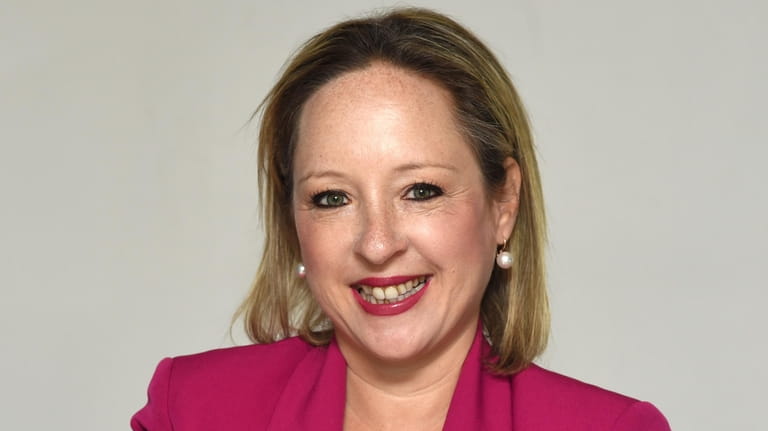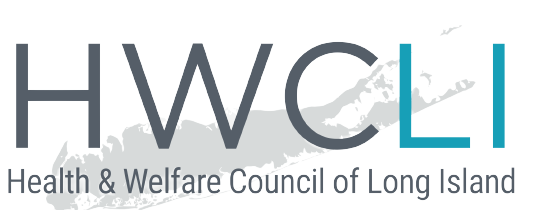Fed’s rate hikes hit home for Long Islanders
By Newsday Staff
Updated July 28th, 2022
Read on Newsday

This article was reported by Jonathan LaMantia, Maura McDermott, Victor Ocasio, Tory N. Parrish and Ken Schachter. It was written by Schachter.
The Federal Reserve’s interest rate hikes are rippling through the economy and hitting many Long Islanders in the pocketbook.
While rising interest rates are designed to tame inflation by slowing the economy, they can create a headwind for consumers, investors and businesses.
Rising consumer prices are something that John Kateridge, 25, a retail worker living in Lindenhurst, said he’s seen first-hand.
“We’ve probably raised prices like four times within the last three months or so,” said Kateridge, who works at a pet supply store.
Kateridge said he doesn’t plan to buy any big-ticket items like a car — he drives a 2011 Chevrolet Cruze he plans on using “until it breaks” — and a planned trip with his girlfriend this fall is on hold over rising cost concerns.
Get the Biz Briefing newsletter!
The latest LI business news in your inbox Monday through Friday.Sign up
By clicking Sign up, you agree to our privacy policy.
Among the impacts of the increases in the Fed’s benchmark rate are:
- Higher borrowing costs for businesses, which may be passed along to consumers;
- Increases in credit card interest rates;
- Higher rates on car loans;
- Jumps in adjustable-rate mortgages and home equity lines of credit;
- Lower prices for bonds, which can hurt fixed-income investors; and one bright spot for savers,
- Higher annual percentage yields for bank savings accounts.
“Interest rates on car loans and home loans are going to go up,” said John Rizzo, economist and professor at Stony Brook University. “This is all consistent with what the Fed is trying to accomplish, which is slowing down inflation by slowing down the economy.”
Rizzo said it might seem counter-intuitive to fight inflationary prices by increasing the cost of borrowing.
“The idea is that by limiting or reducing home purchases, car purchases, spending with credit cards, that reduces demand overall,” he said. “It’s painful medicine.”
Many small-business owners on Long Island are still suffering the effects of the pandemic, and the combined impact of interest rate hikes and inflation are a heavy burden, said Phil Andrews, president of the Long Island African American Chamber of Commerce, a Garden City-based group with about 400 members on Long Island and in Queens and Brooklyn.
“It’s really a tremendous strain on small-business owners right now,” Andrews said.
Business owners who inquire about loans these days are seeing interest rates of 5% or 6%, compared with 3% or 4% before the recent increases, Andrews said. Minority entrepreneurs are especially hard hit since they’ve historically had less access to capital and savings, he said.
“A lot of them are seeking the loans just to stay afloat,” he said.
Scott Maskin, chief executive of SUNation Energy Inc., a solar system installer based in Ronkonkoma, said that rising rates present multiple challenges.

Increased costs to finance solar systems bruise the consumer, Maskin said, while higher operating costs such as truck loans and lines of credit make it more expensive to run SUNation.
“Ultimately, any rate hike negatively impacts my business because it costs me more to do business,” he said.
Long Island commercial real estate, which operates on loans in the 5- to 10-year range, faces a reckoning when those loans come due and interest rates reset, said Patrick Curtis, chief executive of several Bohemia-based property management and commercial real estate brokers, including Suffolk Realty Group and Realty One Group.
“The loan rate is going to explode,” he said. “It’s a huge deal.”
The Fed’s short-term interest rate hikes also have an indirect impact on longer-term loans, such as residential mortgages.
Mortgage rates typically move in the same direction as the yield on 10-year Treasury bonds. In a period of high inflation, mortgage rates would be expected to rise, as they did during the first half of the year. But the prospect of the Fed’s actions causing a recession would keep rates lower.
The average rate for a 30-year fixed mortgage was 5.54% for the week ending July 21, according to mortgage giant Freddie Mac. At the end of last year, the average was 3.11%
“There is a tug-of-war in market expectations,” Mike Fratantoni, chief economist at the Mortgage Bankers Association in Washington, D.C., wrote in commentary Thursday. That back and forth could mean mortgage rates might have already peaked and could stay between 5% and 5.5% through the end of 2022, he wrote.
Brinkmann Hardware Corp., which owns hardware stores in Blue Point, Holbrook, Miller Place and Sayville and a paint store in Jamesport, could face a slowdown in
its expansion and redevelopment projects, said co-owner Hank Brinkmann.
“It’s making these projects more expensive, which will probably slow us down in engaging in new projects because we’ll have to leave more equity in these current projects,” he said.
Many Long Islanders are finding it difficult to pay their bills, community leaders said.

“We hear stories every day of families having to make impossible choices and of our seniors and those on fixed incomes struggling to put food on the table,” Rebecca Sanin, president and CEO of the Huntington Station-based Health and Welfare Council of Long Island, said in an email.
The rate hike announced Wednesday “may be an important step to address inflation,” Sanin said. But, she said, it “also has a significant impact on families that are trying to make ends meet in a region where cost of living is already significant.”
Though the Federal Reserve wields powerful tools, Anthony “Tony” Borelli, a financial adviser for Mass Mutual Financial Group in Melville, cautioned that inflationary factors like labor shortages and goods scarcity stemming from snarled global supply chains are beyond their control.
“The Fed can’t solve inflation exclusively,” he said.
Recent Posts
April 12, 2024
U.S. Census: Long Island children under 5 undercounted at rate higher than nationwide
March 8, 2024
February 14, 2024
Categories
- 2020 Census 9
- Coalitions 4
- COVID-19 10
- Direct Services 3
- HEALI 2
- Health Equity 2
- Healthcare Access 5
- HWCLI 67
- LIVOAD 9
- Press Release 2
- Uncategorized 5
- Weekly Digest 3
Join us in creating a future for Long Island in which everyone has an equal opportunity to prosper and thrive.
Join Our Network
Subscribe to Our Newsletter
Copyright ©2024 HWCLI. All Rights Reserved. Designed by FBC
